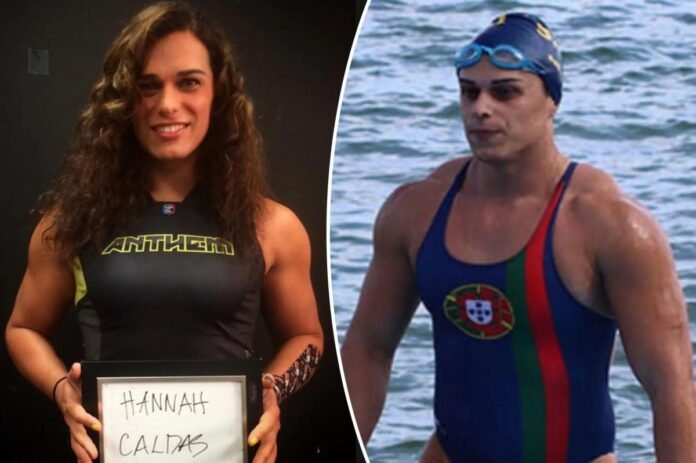A transgender swimmer, Ana Caldas—who also goes by Hannah—has been slapped with a five‑year ban from competition and stripped of all her results from June 2022 to October 2024. The ruling came from World Aquatics after Caldas reportedly refused a gender‑verification test that the federation says is required for athletes who want to compete in women’s events.
Caldas, 47, explained that the test is “not medically necessary” and “invasive and expensive”. She added that her health insurance wouldn’t cover it, because medical providers don’t see it as a required procedure for recreational or masters‑level swimming. “I accept the punishment, but a five‑year suspension is the price I have to pay to keep my most intimate medical information private,” she said.
The gender‑verification screening was part of a larger investigation into Caldas’ eligibility. The probe began after Texas Attorney General Ken Paxton opened a review of U.S. Masters Swimming earlier this year, and World Aquatics stepped in to evaluate whether trans athletes meet the federation’s standards.
World Aquatics has banned Caldas until October 2030 and annulled her titles and records from 2024. The decision has sparked backlash from athletes and supporters. Former University of Kentucky swimmer Riley Gaines shared the news on social media, labeling the ruling as “real life” amid ongoing debate over transgender participation in sports—most recently surrounding Lia Thomas and her record‑breaking performances at the U.S. Masters Swimming Spring National Championship in San Antonio, Texas, where Caldas dominated five women’s 45‑49 age‑group events in May 2025.
The Independent Council on Women’s Sports (ICONS) also weighed in, arguing that allowing Caldas to compete violates fair‑play policies. They cited a rule that trans women must have undergone hormonal therapy and maintained testosterone levels below 5 nmol/L to compete against biological females.
Caldas was born in Portugal and represents the United States. She competed in the senior women’s category at the 2024 Masters World Championships and had earned a place as close as 0.3 seconds from qualifying for the 2012 London Olympics in the 50‑meter freestyle.
Earlier this year, the NCAA adopted new guidelines requiring at least one year of testosterone suppression before a trans athlete can compete as a woman. These rules come in the wake of high‑profile performances by athletes like Lia Thomas, who set records after transitioning from male to female.
The debate over trans athletes in competitive swimming continues to heat up, with organizers, athletes, and advocacy groups all watching how World Aquatics and other governing bodies will balance fairness, science, and athletes’ rights moving forward.
Source: New York Post
Stay informed on all the latest news, real-time breaking news updates, and follow all the important headlines in world News on Latest NewsX. Follow us on social media Facebook, Twitter(X), Gettr and subscribe our Youtube Channel.



